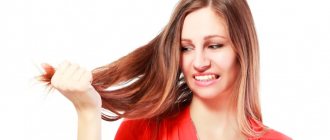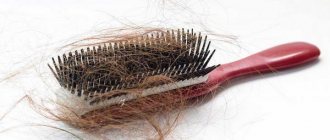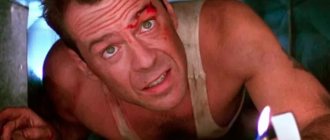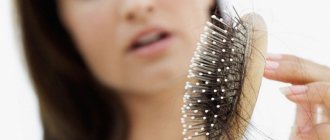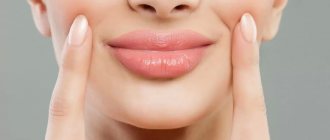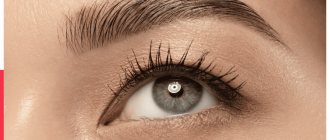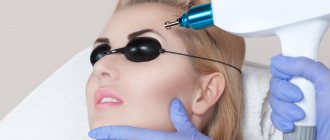Causes of hair loss
Stress, diet, frequent use of curling irons, coloring, hormonal problems, diseases of internal organs - all this can trigger hair loss.
Photo: https://unsplash.com/@bayleejadegramling
Recently, trichologists have noticed another problem - after coronavirus, many people have experienced itching, burning, tingling in the scalp, and as a result, hair loss. “This is primarily faced by those who have suffered a coronavirus infection with a high temperature reaction, patients with severe forms of pneumonia, as well as those who have required hospitalization. There are several explanations here: there is a theory according to which increased hair loss occurs directly from the action of the virus, since at this time the immune system is very reactive and reacts with a hyperresponse, releasing a large number of pro-inflammatory mediators, this turns out to be stressful for the hair and such hair ends up in the resting phase ahead of time. Thus, many hairs are in the resting phase at the same time. This phase usually lasts several months. The second theory is that coronavirus infection leads to the formation of microthrombi. They can be in the microchannel of the hair follicle. This is why hair does not receive enough blood supply, oxygen and nutrients, which leads to hair loss. A third reason may be medications with a powerful immunosuppressive effect, which can contribute to increased hair loss. It is possible to check whether the patient really suffers from excessive hair loss only by consulting a trichologist. For these purposes, two tests are carried out: the first is trichoscopy to determine the condition of the hair and scalp at the moment, the second is a phototrichogram, which consists of two stages that allow you to assess the ratio of hair in the growth phase and the loss phase,” explains Vladimir Vavilov, trichologist, dermatovenerologist, oncologist GMS Clinic.
Starting from scratch: how to live with a diagnosis of alopecia.
Murzaeva Irina Yurievna
Endocrinologist, Preventive Medicine Doctor
May 9, 2016
Alopecia is hair loss. There is such a complex and “terrible” type of hair loss - total alopecia (complete hair loss). This is the story of a girl suffering from such a pathology, how not to despair and continue to fight.
- At the age of 20–30 years, common causes of hair loss are stress, an unbalanced diet, and pregnancy. After 40 years, hair thinning begins due to hormonal imbalance.
- No self-diagnosis - if it seems to you that your hair has stopped lying as usual, immediately contact a trichologist. The examination of the body must be comprehensive.
- Doctors classify total alopecia as an autoimmune disease - the human body rejects native hair follicles.
Based on materials from Allur magazine 05/2016
“Since childhood, I had long brown hair below my shoulders. I've never even painted them. I also didn’t experiment with haircuts and styling: my hair was straight and surprisingly thick. Up to 24 years old. And then within four months I lost them. This happened six years ago.
It all started suddenly. I was working at a fashion magazine then, my first adult job, and suddenly our team was changing. I started to twitch: will I be fired or not? Two new bosses appeared at once. I lived under hellish stress for a month.
I have always been an emotional person - it was quite easy to make me hysterical. I perceived any event - an unsuccessful shoot, a quarrel with a loved one - as the end of the world. She always blamed herself for everything, considered herself worse than others. Soon I went on vacation and began to notice that there was a problem with my hair: if you run your hand, it stays on your fingers. The first reaction is panic. Since childhood, I haven’t been particularly sick with anything. I didn’t understand who to run to and what to do. I called my mother - she calmed me down and recommended traditional medicine: burdock oil, tinctures with pepper.
At first I didn't take it seriously. I thought: autumn, vitamin deficiency... It didn’t even occur to me to go to the doctor. Then I didn’t know what trichologists do. At the same time, I broke up with my boyfriend. The indirect cause was hair. I began to have a complex that they were falling out, blaming this problem for everything. And the stress became even stronger. The loss continued for several months. By the New Year, my hair had thinned by a third, and my scalp was clearly showing through. I finally decided to go to the clinic. The doctor I went to said, “Your hair will never grow back.” I cut my hair shorter, and then completely shaved my head bald. I went through a week-long hysteria. So in less than six months I was left without hair.
My friend’s boyfriend, who had his own hair problems at that time, advised me to consult with Academician Yuri Sergeev, founder of the Institute of Allergology and Clinical Immunology. The doctor put me on the powerful hormonal glucocorticoid drug diprospan for several years. It does not eliminate the cause of hair loss, but simply relieves the symptoms. As soon as you stop injecting it, your hair starts falling out. Unfortunately, in our country it is prescribed in most cases of problems similar to mine. Diprospan is also prescribed for autoimmune diseases, one-time for allergies, bursitis, and some respiratory diseases. In addition to intramuscular injections, I was prescribed vitamin mesotherapy.
The first time I had the procedure done, it took me 40 minutes – it hurt like hell. After the session, the skin begins to burn and itch, but you cannot touch it. Plus they give you several deep injections - it seems like right into the bone of the skull. After three to four months, the hair grew back. I got my hair short. And I naively thought that I had solved the problem. After a month without mesotherapy and hormonal injections, my hair fell out again. I am grateful to my mother and sister, who supported me very much. “Lenochka, you are the most beautiful!” - Mom repeated. I'm sure she was panicking in her heart, but she didn't show it. Even my grandmother, who is over eighty, got involved: “So, I wrote out recipes for you from the magazine “Vestnik ZOZH”…”
Some time passed, and a makeup artist friend advised me to contact the State Scientific Center for Dermatovenereology and Cosmetology on Korolenko Street. The doctor prescribed the same diprospan injections into the areas of hair loss, as well as physiotherapy with narrow-band low-wave ultraviolet radiation: a special solution is applied to the head, something like a helmet is put on, and the rays are applied. I was treated there for two and a half years. They injected me with diprospan, and when my hair grew back, they only did mesotherapy. Without diprospan, my hair began to fall out again, and I was again prescribed a course of injections.
I understood: I couldn’t stay on hormones for a long time. Need a break. At the next doctor’s appointment, the first thing they asked me about my parents was to make sure that hair loss was not hereditary. My parents are now 60 years old, my dad doesn’t even have a hint of baldness. The test results were perfect, even in space. Money and effort were wasted.
I saved myself with Japanese keratin fibers - I sprinkled them on my scalp like powder, and the gaps became less noticeable. Otherwise, I wouldn’t be able to go without a hat or scarf for so long. When everything started to piss me off, I shaved my head. Thanks to my friends: they assured me that this “styling” suits me.
And I came to an ordinary beauty salon on Sukharevskaya, to Galina Yakovleva. She is one of the best doctors I have ever met during all my suffering. Galina was horrified when she found out how much Diprospan had been injected into me before. We started all over again, but without hormones. I periodically wanted to lose my temper. Diprospan is like a drug - I wanted to inject it again so that my precious hair would grow faster. Now they are expensive in every sense.
Galya suggested plasma lifting. I liked the idea - the body recovers using its own resources. We started with plasma, injecting it once every ten days (about 10 thousand rubles for one test tube, I needed two for a session), then we did mesotherapy, carboxytherapy (5 thousand rubles per procedure), which really helped me. CO2 was driven under the skin to stir up the hair follicle. A pleasant “side” effect was perfect facial skin. For the last two years I have not used foundation at all, there is not even a hint of wrinkles, but you get used to the pain. Now my eyebrows and eyelashes - in six injections - are done without anesthesia.
Over nine months of treatment, we restored the hair by 50–60%. I was pleased with the result, I thought it would all be over by the New Year. But last summer a tragic event occurred - a very close friend died. Everything happened suddenly, nothing foreshadowed trouble. We talked to him in the morning, but in the evening he was no longer there. And shortly before this, an extremely unpleasant story happened: I was attacked in the entrance of my house. Everything turned out fine - I tore the scarf from my head and said that I was terminally ill. The man was scared. The stress was terrible. Then not only my hair began to fall out, but also my eyebrows. After that, I clearly realized that my emotional state was reflected in my hair.
I made an appointment with a psychologist. I realized that talking to myself is an important part of treatment. The psychologist told me: “How much you don’t love yourself! Hair is one of the elements of female beauty. And you have exhausted yourself...” When he said this out loud, I suddenly realized obvious things. Day after day, year after year, I convinced myself: “I’m mediocre, I can’t do anything, and yet he didn’t look at me like that...” And my dislike for myself led me to this state. I started working on myself, trying to stop being hysterical. I became a believer, I go to church more often and now I understand: they don’t send us what is impossible to survive. You just need to change your attitude towards the test. This is daily hard work, a struggle with yourself. Sometimes friends ask what to do with problem hair, where to go, who to make an appointment with. The only thing I advise them is: “Calm down! Right now. Then you will decide what to do.” But calming down is the hardest thing.
To restore my mental balance, I took up sports: I run in the summer, ski in the winter, and do strength training in the gym all year round. I used to have excellent student syndrome. When they gave me the first B during the session, I cried. Mom was indignant: “Lena, what are you doing? What tears? Everyone is alive - mom, dad, relatives. What is the problem?" The problem was me. I always tormented myself the most. My work is a big part of my life, I am a very ambitious person. But the higher your ambitions, the more acutely you perceive failures. How many times has Galya Yakovleva listened to my complaints. I could have cried in her chair. I was looking for the reason for all my failures in illness. Galya is an excellent doctor. If it weren’t for a series of stresses - an incident at the entrance and the death of a friend - we would have succeeded. But treatment has stalled.
At one of the shoots, singer Vera Brezhneva, who was inspired by my story, advised me to stop knocking on a closed door, otherwise nothing would change. Galya did her best. And I started looking for another doctor. All these years I had to figure out how to hide my condition. My job is constant communication, which means I need an image that attracts people and does not repel them.
When I first saw myself in the mirror with my head shaved, it was a shock. At that moment, my hairdresser friend calmed and encouraged me. But for several days I couldn’t look at myself. I was afraid to touch my head. At first I wore a hat, then decided on scarves. I now have a huge collection of them in different colors and textures - I can give master classes on how best to tie them.
My French teacher was sure that I wore a headscarf not because of problems with my hair, but simply because it was my style. The situation at the London airport became a reason for serious worries: I was asked to take off my headscarf. I couldn’t do this in front of everyone, only in a separate room. For a visa, you must be photographed without a headscarf. She said at the control: “I have problems with my hair.” The bald officer grinned: “Look, me too.”
My makeup became brighter, I wanted to highlight my eyes more - when you wear a turban, all attention is focused on them. Sometimes I wear large clip-on clips. There are times when I'm ready to give in and buy a wig, but then I tell myself no. I don't think it's fair. I don't want to hide my problem. Yes, some of my friends wear wigs. But it's their choice. I want to be stronger than my misfortune. And it doesn't matter what people say about me. Perhaps I should be grateful that this happened. Otherwise, I would have remained hysterical and painfully sensitive. During this time, I rethought a lot. Previously, relationships were easy and fun - I was twenty years old, I wanted to hang out, have fun, nothing serious. Then I decided that without hair, men no longer liked me. But a person appeared in my life who refuted my fears. This is my old friend. The last time he saw me with long hair, he suddenly called me five years later. We've been in close contact for over a year now. And he likes me the way I am.
Six years have passed. I have experienced all stages - from rare hair loss and focal alopecia to total - alopecia totalis. Even my vellus hair doesn't grow anymore. This is an extreme stage and there is little chance of solving the problem. Hair is still growing on the body, there are eyebrows and eyelashes, but without pigment. It’s a pity that at the beginning of treatment I didn’t know anything about my psychological problem. I would have skipped hormone therapy and gone straight to my emotional health.
Now every week I go for mesotherapy to dermatovenerologist and endocrinologist Nino Bigvave-Abbas at the Bellefontaine clinic. She is positive. This treatment gives the best result in my situation. Nino herself mixes injection cocktails of vitamins for me and says that in a couple of months we will try plasma therapy. The task is to stir up dormant hair follicles, and for this you will have to be patient. Long-term stress has disrupted blood flow. The recovery process can take months, even years. And there is no confidence in victory. No one is immune from severe stress. But my happiness is that I have already learned to get out of ordinary unpleasant situations with minimal losses.
The psychologist believes that it is imperative to come to terms with yourself, to accept yourself as you are. A year ago, on vacation in Israel, I went without a headscarf and did not arouse any increased interest - the people around did not care. Having had a glass of wine and become bolder, I can now post a photo without a headscarf on Facebook. I know that I have a good skull shape. I felt so good on the beach without a headscarf! But I’m not ready to film it here in Moscow yet, I’m not that strong yet. Although I wouldn’t have been able to tell my story six months ago either.”
Based on materials from Allur magazine 05/2016
When should you go to a trichologist?
You should contact a trichologist if you had problems with your hair before the coronavirus and if your hair loss lasted for several months. “If we talk about seasonal hair loss, it does not require special treatment. This is a natural process that regresses on its own. As for post-Covid hair loss, we are trying to stabilize the condition and help patients. It is clear that “acute” hair loss, as a rule, goes away on its own, but this is a huge stress for our hair. Therefore, recovery may take 6–8 months. The doctor will select the appropriate treatment, these could be vitamin complexes, and it is also possible to prescribe mild growth stimulants externally,” notes Vavilov.
Why did the hair on the back of my head fall out?
When talking about baldness of the back of the head, it should be borne in mind that the causes of the disease can be general changes in the condition of the body and gender-related ones. Yes, yes, baldness of the back of the head in men and women is sometimes different things caused by different underlying causes. Common causes of baldness at the back of the head include conditions such as:
- Stressful conditions, prolonged depression and neurotic disorders . Very often (in more than eighty percent), baldness of the back of the head occurs precisely against the background of these conditions. Therefore, emotional stability is very important, and a frivolous attitude to stress is unacceptable.
- Problems with blood circulation in the damaged area. Most often, baldness for this reason occurs due to dandruff and (or) increased sweating in the back of the head. The skin simply cannot cope with timely cleansing, the hair follicles become clogged and problems with normal hair growth begin.
- Immunological factor. Due to changes in the state of the immune system, it begins to react to the hair follicles as foreign, hostile to the body and, therefore, turns on mechanisms to combat the “stranger.”
- An unbalanced diet can also be an indirect cause of baldness at the back of the head. Particularly dangerous is a lack of protein, vitamins and microelements, which can occur not only due to insufficient nutrition (during diets, for example), but also with an unhealthy diet with a lot of sugars, fat and fast carbohydrates.
The gender coloring of the risk factors for baldness of the back of the head is expressed as follows. Baldness of the back of the head in men is often caused by hereditary factors and appears in most cases after the age of thirty. In women, baldness of the back of the head is a consequence of hormonal imbalance caused by diets, pregnancy, menopause, neurotic conditions, etc.
Home care
It is important to understand that it is impossible to stop the loss of hair that has entered the dormant phase. And the main task is to stimulate the growth of new hair. In order to return the hair follicles to the active phase, choose shampoos, lotions and balms that stimulate hair growth. Many experts advise using scalp scrubs several times a week, before shampooing - they stimulate blood circulation and have an exfoliating effect.
1 — activating hair growth spray, Oribe, 2 — shampoo for restoring scalp balance “Common People,” evo, 3 — Burdock hair oil, Eveline Cosmetics, 4 — strengthening tonic against hair loss for daily use, Leonor Greyl, 5 — hair growth product with rosemary, Weleda, 6 hair growth enhancer Hair Booster, Nioxin, 7 - hair growth activator shampoo with black pepper, parsley extract and panthenol, Mixit
Vitamins against hair loss and various food supplements should not be prescribed for yourself - it is better to contact a specialist and select the necessary microelements and minerals. Also pay attention to your diet - include olive oil, nuts, avocados, fish, turmeric and ginger.
Avoid hairstyles that are too tight—while a high bun always looks cool, it can put extra stress on your strands. But a scalp massage, on the contrary, will help increase blood circulation and activate metabolic processes.
Stress and emotional stress
As mentioned above, a negative external background has a noticeable detrimental effect on a person’s mental state. As a result, there is an active production of a stress marker - cortisol, which increases the circulation of testosterone. However, there are cases when it is problematic or impossible to determine what is causing hair loss in women, since tests, heredity and nutrition are normal. In such a situation, you will need to consult a psychologist; in psychiatry there is such a pathology as trichotillomania.
This disease is manifested by unconscious pulling out of the hairy component of the body, which occurs after neuropsychic disorders. Due to emotional lability, it is the representatives of the fair half of humanity who are more susceptible to these problems. It can occur due to chronic anxiety, low self-esteem or frequent depression.
Salon and medical procedures
There are cases when home treatments and remedies against hair loss no longer help. Then there is a reason to turn to professionals. Among salon procedures, the most famous are mesotherapy, plasma therapy and micrografting.
With mesotherapy, minerals, amino acids and vitamins necessary for the health of the hair roots are introduced into the scalp using injections. This procedure not only prevents hair loss, but also stimulates new hair growth and strengthens it. During plasma therapy, platelet mass or plasma is isolated from the patient’s own venous blood and injected into the affected area, which helps to launch the body’s reserves and regeneration. Micrografting is a procedure in which healthy hair is transplanted into problem areas.
The hair on the back of my head has fallen out, what should I do?
Depending on the results obtained, treatment is prescribed. It can be medicinal, hardware, or radical (if all else fails) - hair transplantation. Among the drugs, minoxidil, finasteride, glucocorticosteroids, anthralin, and tretinoin have proven themselves well.
But a reservation should be made: you absolutely cannot take them on your own! Only as prescribed by a doctor, since all of them are quite strong medications that have serious contraindications. Drug therapy is often combined with physical therapy. This includes dersonval, laser, electrophoresis and electrotrichogenesis.
In any case, the specific therapy must be prescribed by a medical practitioner. Self-treatment of nape baldness is fraught not only with a lack of effect, but also with a possible harmful effect on the patient’s health.
Post Views: 272
Effect of high and low temperatures
Any modern lady cannot imagine her life without a hair dryer or straightening iron. The ability to instantly dry your curls, curl or straighten them - this list is simply irresistible. However, frequent infatuation with such manipulations causes irreparable damage to the hair, which not all fashionistas think about. Regular use of a hot air stream for drying or constant exposure to the high temperature of a curling iron causes a destructive effect, causing the curls to become brittle, lose their elasticity and natural shine. If the harmful effects are not stopped in time, then alopecia is almost guaranteed.
Drying completely wet strands is especially dangerous. Experienced hairdressers and trichologists categorically prohibit such a procedure, since in this case there is a maximum detrimental effect not only on the ends, but also on the roots.
Low temperatures also have a detrimental effect on hair. Hypothermia negatively affects the condition of the bulbs - they do not receive sufficient nutrition. In winter, it is recommended to wear hats to protect your hair and skin from temperature changes.
